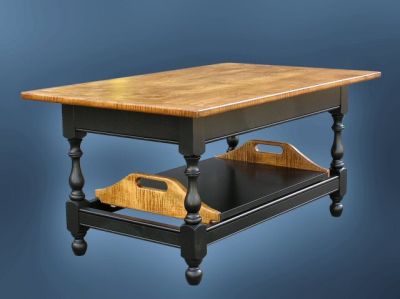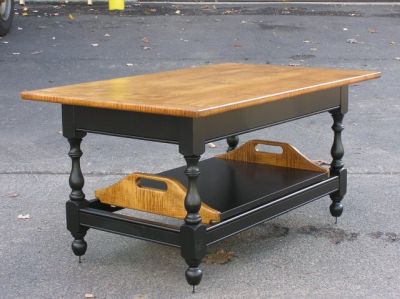Question
We finished a job last year where we did some millwork in a new house. I found out recently that the job had won some awards for the architect and GC from the local branch of AIA. I got the name of the photographer who shot the job and asked about prices for some of the photos that showed the work we did. The photographer responded, asking how we intended to use the photos. I told the photographer that we would put them in our portfolio book and on our website.
The quote I received had different pricing for each different situation. Prints for the portfolio book were $150.00, prints to hang on the wall were $275.00, images for the web site were $450.00 per year for a 1/4 page, $750.00 for 2 years, $1500.00 for 5 years, and an additional fee (that would be waived if we bought multiple images) if the image was to be on the home page. Additionally, all images would be required to include a photographer's credit.
Is this payment structure typical? It seems to me that if I hired a photographer to shoot something for me, particularly if it is something that I both designed and built, and I paid for the photographer's time, materials, overhead, and profit, then I would own the product that resulted from the service that I paid for. When somebody gives me a design for a piece of furniture to build, I don't have any claim on it after I am paid. Isn't the photographer clearly doing work for hire? How is it justified that copyright would attach when a photographer is being provided exclusive access to shoot the item in question, being instructed as to what the results are to be, and being paid to do so? If I hire a writer to compose a press release for me (intellectual property), am I obligated to pay the writer a fee beyond whatever was negotiated for the work every time I mail out the press release? And what if the photographer hires another photographer - which one has rights to the resulting product? If I hired a photographer to shoot a piece of furniture for me, and the next day hired a different photographer to shoot the same item, resulting in images that are identical, does the first photographer have any claim on the work of the second?
Not really intending to beat up on photographers… We all have a right to make as much as we can, but when it comes time for me to hire a photographer, these issues will really bother me. I don't disagree that if you create something new in the world, be it a photo, a song, or a piece of furniture for that matter, you should be entitled some protection from copies and knock-offs. But when you agree to be hired to do something at the instruction of those who are paying you, you are no longer providing a unique product; you are providing a service, and that would seem to change everything.
Forum Responses
(Business and Management Forum)
From contributor L:
Hate to tell you this, but the photographer is charging you about the right price. You are buying his services. The photos that he takes are his. Any photographer has the right to copyright their work and it is their property. You need permission to do anything with the photos they take. I think the structured payment for the web seems to be kind of steep, but if that is what he wants for them, that is what you need to pay him.
I talked to one photographer in my area and got the same type of quotes you did, but when I mentioned that he had photographs in several local publications of my product, and I expected the same deal when my product was his subject, he stopped returning my phone calls.
Keep shopping. You will find someone who can do what you need for a reasonable cost, and if you have a local college or university, you could probably find a local student to do your photography for the experience.
Also, don't discount the hobbyist. Some of these guys have more equipment than the pros, and since they are not dependent on their hobby for a living, many will either do it for the experience, or for a very reasonable fee.
Now if I took a picture of the cabinets that I made and installed - and in some pictures my customer would be in some of the pictures - I'd have to get a release from the customer to use said pictures for my advertising of my products… That is, unless I had a signed release stated in the contract with the consumer when he purchased the products.
Now some photographer comes along and takes pictures of my work without a release from me. How so? I guess it's all in the types of binding contracts we make with our consumers and subcontractors. I have noted that artists now spray on the back of their paintings that all rights are reserved.
Moreover, the camera is probably deductible, and you would be able to photograph your work in the future. We use a Nikon D50 and a couple of 400 watt color corrected floodlights along with a Wal-Mart tripod. Some of the new digital SLRs have motion compensation which is also helpful. To me, this is a no-brainer, though photographers have to make a living too - and I don't find these prices exceptional.
Should you get a camera and do it yourself? I believe that's a bit like buying a table saw and expecting to produce a finely crafted piece of work first time out. The tools are less important than the know-how as far as the outcome is concerned.
Almost everyone owns a camera these days, and the digital ones make shooting practically foolproof. But that does not mean that each one taken is of equal value. Although I'm fully capable of photographing my own work, my background is in journalism, theater and still-lifes of liquor bottles. Photographing people or whiskey is much different than architecture. When I need something for my own book, I call in a pro (fortunately I have friends in the business). They not only have the equipment to give dependably spectacular results, but they understand how to use light to complement and highlight the work.
Making images that will reproduce well is another aspect often overlooked. Need 5,000 pieces for a mailer? It's done differently than the way the corner drugstore makes prints. What looks good in a stack of 4x6" vacation prints does not necessarily translate well to larger prints or large run duplicates. The average cabinet builder might have a hard time photographing with an extremely wide angle lens from a low or high vantage to correct rectilinear distortion. Or mixing window light with artificial light and still getting the right contrast and color balance on your beautiful woodwork. And how about adding a flame in the fireplace so the room looks lived in? More easily said than done. Lots of pitfalls. Done yourself, your pictures will probably look fine. A pro's should look spectacular. The difference will be readily noticeable to your clients.
If you buy photographs that someone else took for another purpose, you will pay the going usage rate. It is possible to hire a photographer for the day (or half day) to shoot your stuff with an understanding that print or transparencies will be additional. Expect to spend about $1000 - $1500 for the day. Use a photographer who shoots interior architectural work, not someone who does weddings and is willing "to try."
As for your copyright question, that's for the lawyers. In a nutshell, those images (or words, in the case of writers) are how these people earn their living and feed their families. Copyright insures that they are compensated fairly for their work and guards against other uses. An example is music. I can buy a CD and play it all day in my home for the cost of the CD... But if a restaurant plays the same CD as background for their dining room, they must pay a fee. These fees begin at about $10,000 per year for generic usage of, say, ASCAP protected product. Otherwise, you are using someone else's creation for your own financial gain, without them being compensated. Another example is commercial radio. Every time a song is played, someone gets paid.
New projects are easier to negotiate than a project that has won an award... That says "bingo" to the typical artisan.
When was the last time you rented a cabinet to a customer? Find another photographer and reshoot, or check with the magazines that have published. Many times they have already bought all the rights to a photo and are willing to let the subject of the photo use it for merely giving credit to the magazine. With the digital photo world, a lot more can be done after the shutter clicks, thus a lot less talent is necessary up front. Try trade schools and students. They can do some great stuff at a fraction of the cost.
By the way... The photo he wants to charge you $150 for cost him about $10... and even with markups like that, they spend the majority of their time in the unemployment line.
Although it is usually possible to reshoot an architectural job if need be, the other pressures and costs remain. I recently came out of mothballs to shoot a friend's wedding for free. My cost was almost $700 and that was only to the proofs stage.
I once was that talented high school photographer. I got better still as I studied at a major art school for the next four years and did many jobs along the way. It was nice - I got some experience while I was young, and they got some nice photography for a very reasonable price, but I wouldn't mistake what I was capable of then with what I later became capable of. There is a huge difference.
I've heard that talented people aren't usually limited to one talent. This may well be one of yours. So, if you have the ability and you are happy with your own images as representative of your work, there are some advantages to doing your own photography. You might get exactly what you want (conversely, if it's not up to snuff, at least you know where the fault lies).
Architectural work normally uses 4x5" film. Completely different camera and lenses. With this rig, you can straighten out converging lines and make your cabinetry look nice and straight and square regardless of the angle you take the shot from. Most pros have three different formats of camera to choose from, depending on the kind of shot needed. All with backups and multiple lenses. Lighting equipment is another discussion.
I find it odd that when pricing is discussed on this forum, the battle cry is "don't give your work away." We rail against it when a client suggests that we should sell our work cheaper to them, yet some in this thread are advocating the opposite when it comes to buying services from another trade. For photography done well, these guys earn every nickel.
And yes, a cabinetmaker can do exceptional photography on his own, just as a photographer (or dentist, or secretary, etc.) can build beautiful cabinetry, right?

